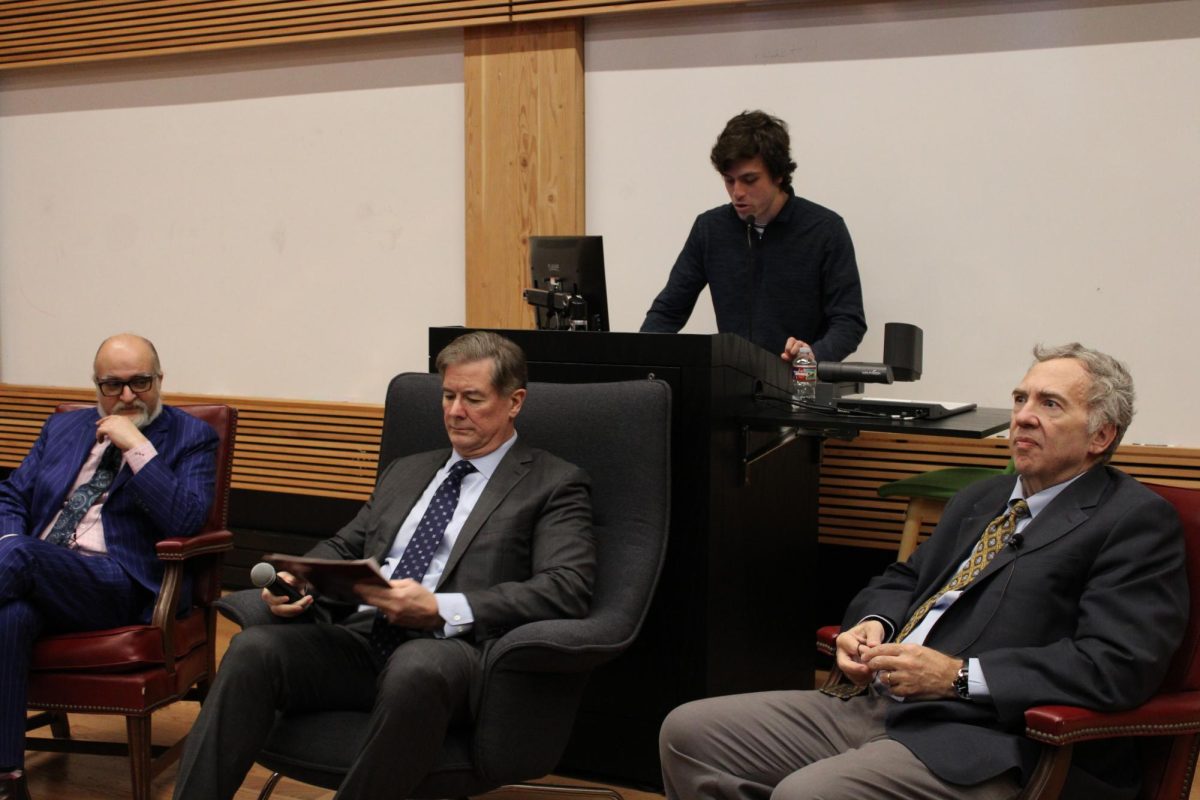A couple of weekends ago was the annual Trinity University Alumni Weekend, which brings to campus hundreds of graduates, some of whom live nearby and frequently attend events on campus; others reside in every place imaginable (some even unimaginable) and haven’t been on campus in decades, but come back for significant “reunion years.”
Following my Saturday morning speech, “Down Memory Lane and Beyond,” Selim Sharif, associate director of Alumni Relations, lead me to room 357 in the Dicke/Smith building, where I was to meet with members of the Class of ’63.
Gracious as always, Selim pretended to ignore that I’d snatched two chocolate chip cookies and a cup containing the dregs of the lukewarm coffee off the hospitality table, and, once in the room, he busied himself doing what exemplary staff persons do ““ he arranged the desks in a large circle in order to create an environment that he knew I wanted ““ one that would encourage informal conversation.
Somewhat apprehensively, I began the “conversation” by asking these alums to take a few minutes to tell us some highlights of the past fifty years. (I didn’t dare ask, “So, what have you been up to this last half century?”
Doing so, however, did cross my mind.)
In hindsight, it wasn’t surprising that they were all articulate and vulnerable; not a single one used “like” or “basically” as a filler. They did, however, speak from their hearts.
As is so often the case with Trinity people ““ whether long – ago graduates or contemporary ones ““ these individuals took my inane request and ran with it, succinctly telling us where they’d lived, what other education they’d had, what professions they’d followed, what hobbies fascinated them. They spoke openly of losses of spouses and children, and several of the men commented on their service in the military, mostly in Vietnam; following my inevitable mention of pets, a few of the more nervy ones even tried to outdo me with obviously hyperbolic comments about theirs.
The tone of our conversation wasn’t nostalgic, as I’d expected it might be, but, when they spoke of their years at and memories of Trinity, they ““ to a person ““ commented on the marvelous, accessible, supportive faculty, their remarkable peers (several of whom had married one another) and the challenges and learning gained from the Trinity residential life experience.
Admittedly, one man asked me to absolve him for getting lost on the way back to the dorms, making his date late for her curfew. She was at the meeting with her husband, this bad-influence date, with his wife. Apparently, I had mandated a three-weekend campus penalty on the woman, even though he was responsible for her lateness by getting lost. He wanted forgiveness, which, Lord knows, I was happy to give, though I couldn’t help but hope he hadn’t been brooding over this for all these years. (Rules are rules, you know, and, in those “good old days,” only women had any.)
I finally introduced nostalgia by mentioning my appreciation of Earl Abel’s restaurant, long located at Hildebrand and Broadway, but now further out on Austin Highway. I reminded the group that this was the only restaurant in the city that would let me and some of the women students enter when accompanied by our one black student, whose name I, of course, and everyone in the room, recalled.
After my recollection, one of the alums shared an even more moving one: she, a couple of friends, and this same, lone, black student joined a “sit-in” at the Woolworths counter downtown. As they tried to eat their bowls of chili, they were harassed, their heads shoved into their bowls, and subjected to the usual epithets of that ugly era.
Being Trinity students, they reacted angrily, defending themselves, but they soon learned that they had “flunked” the training for “sit-ins” because they had failed to comply with Dr. King’s insistence that they not respond in kind, no matter how cruel the mistreatment, how harsh the words.
We all shared their shame in being kicked out of “sit-in” training, but, once again, all of us felt immense pride when reminded of the quality of human beings who have built this institution.
Coleen Grissom is an english professor.





